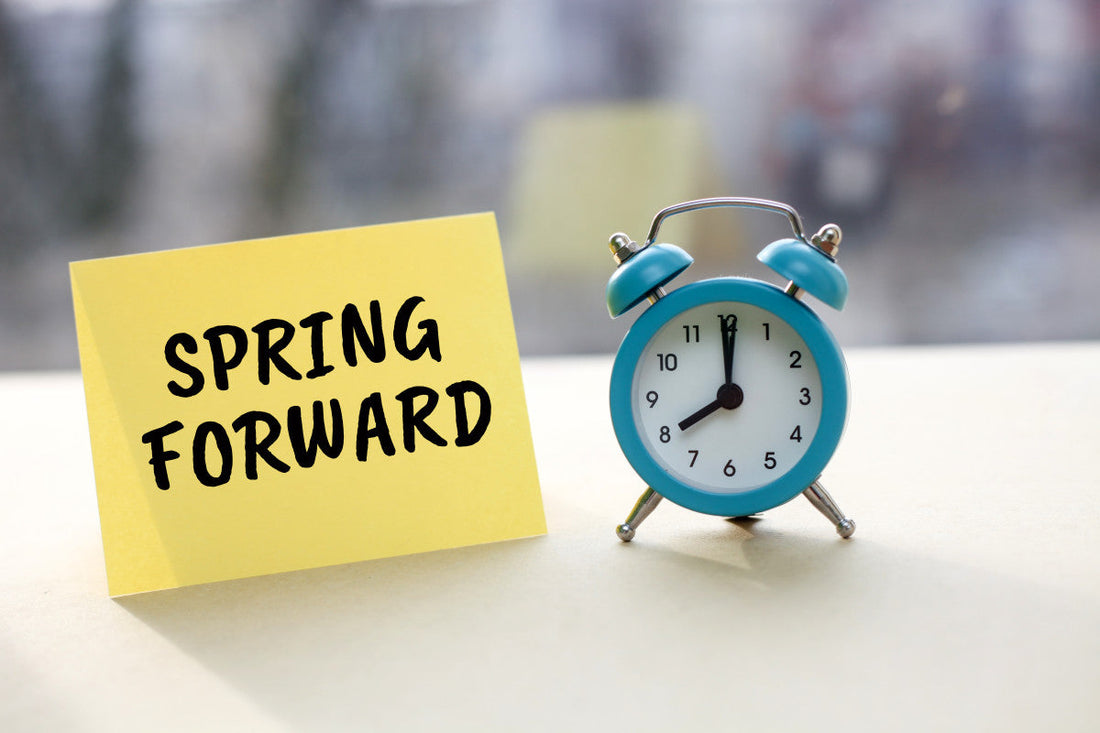
Daylight Saving Time: Is It Helping or Hurting Our Health?
Share
Every spring and fall, we adjust our clocks for Daylight Saving Time (DST), a practice that was originally designed to make better use of daylight. But while extra sunlight in the evening may seem like a bonus, research suggests that shifting our clocks forward and backward twice a year can take a toll on our well-being.
Sleep disruption, mood changes, increased stress, and even higher risks of heart-related issues have all been linked to DST. If you’ve ever felt groggy, anxious, or just “off” after the time change, you’re not alone. The good news? Natural remedies like CBD may help your body adjust more smoothly.
Why Do We Have Daylight Saving Time?
DST was first introduced during World War I to conserve energy. The idea was that shifting an hour of daylight from the morning to the evening would reduce the need for artificial lighting. The U.S. adopted it permanently with the Uniform Time Act of 1966, but today, many question whether DST is still necessary.
Not all places follow DST—Hawaii and most of Arizona don’t observe it, and several states have proposed legislation to eliminate the clock change altogether. Globally, many countries have abandoned DST due to its potential downsides.
Are There Any Benefits for having Daylight Saving Time?
The main advantage of DST is the extended daylight in the evening, which encourages outdoor activity and socializing. Some also argue it helps reduce symptoms of Seasonal Affective Disorder (SAD) by increasing exposure to natural light.
The Downsides of Daylight Saving Time
While adjusting the clock may seem harmless, even a one-hour shift can throw off our body’s internal clock (circadian rhythm), leading to a range of issues:
1. Sleep Disruptions & Fatigue
Losing an hour of sleep in the spring can lead to lower energy, difficulty concentrating, and irritability. Our bodies need time to adjust, and for some, this process can take weeks.
2. Increased Stress & Tension
A disrupted sleep cycle can contribute to higher levels of daily stress, making it harder to feel balanced and at ease.
3. Higher Risk of Heart-Related Issues
Some studies suggest that sudden shifts in sleep and daily rhythms may be linked to short-term changes in heart health.
4. Mood Swings & Seasonal Changes
Losing morning sunlight can make it harder to feel refreshed and energized throughout the day. Exposure to natural light in the morning is essential for maintaining a balanced mood.
5. Reduced Focus & Higher Risk of Accidents
Many people experience slower reaction times and brain fog in the days after DST begins, leading to more accidents on the road and in the workplace.
How CBD May Help Your Body Adjust to DST
At Kota Botanics™, we believe in using natural solutions to help the body stay balanced. CBD (cannabidiol) is a plant-derived compound that works with the body’s endocannabinoid system (ECS)—a system responsible for regulating sleep, stress responses, mood, and overall equilibrium. Here’s how CBD may support your well-being during the transition:
1. CBD Encourages Relaxation & Restful Sleep
CBD interacts with receptors that influence relaxation, making it easier to unwind before bed. Unlike melatonin, which only signals the body that it’s time to sleep, CBD may help calm a restless mind and support a healthy sleep cycle.
2. Promotes a Sense of Calm
Feeling more tense or irritable after the time change? CBD is often used as part of a daily wellness routine to encourage a relaxed state of mind. By supporting the body's natural ability to manage everyday stressors, CBD may help you feel more at ease.
3. Supports Mental Clarity & Focus
If you experience grogginess or difficulty concentrating after DST kicks in, CBD may help support cognitive function and alertness throughout the day. Many people use a small dose in the morning as part of their routine to stay centered and focused.
4. Helps Maintain a Balanced Mood
Because CBD interacts with the body's endocannabinoid system, it may support emotional well-being and help stabilize mood during periods of transition, like DST. Pairing CBD with healthy habits—like exercise and getting morning sunlight—can further enhance mood balance.
5. Supports Overall Wellness
By working with the body's natural systems, CBD may play a role in maintaining equilibrium as you adjust to changes in routine. Whether it’s sleep, mood, or daily tension, a well-balanced system helps you feel your best.
How to Use CBD for a Smoother DST Transition
- For better sleep: Take a full-spectrum CBD Oil or broad-spectrum CBD softgels about 30-60 minutes before bed to help with relaxation.
- For morning alertness: Try a lower dose of CBD oil in the morning to support focus without the jitters of caffeine.
- For stress & balance: A daily CBD routine (capsules, gummies, or oil) may help maintain a sense of calm and stability.
- For mood support: Use CBD alongside lifestyle habits like exercise, meditation, and exposure to natural light.
Final Thoughts: Should We Keep DST?
While the extra daylight in the evening has its perks, the disruptions caused by DST—especially the time change—can be challenging for many. Some experts advocate for eliminating the shift and sticking to a consistent schedule year-round.
Until then, taking proactive steps to support your sleep, stress levels, and overall well-being is key. Incorporating CBD into your wellness routine may be a natural way to ease the transition and help your body stay balanced.
What do you think—should we keep or ditch Daylight Saving Time? Let us know in the comments!
